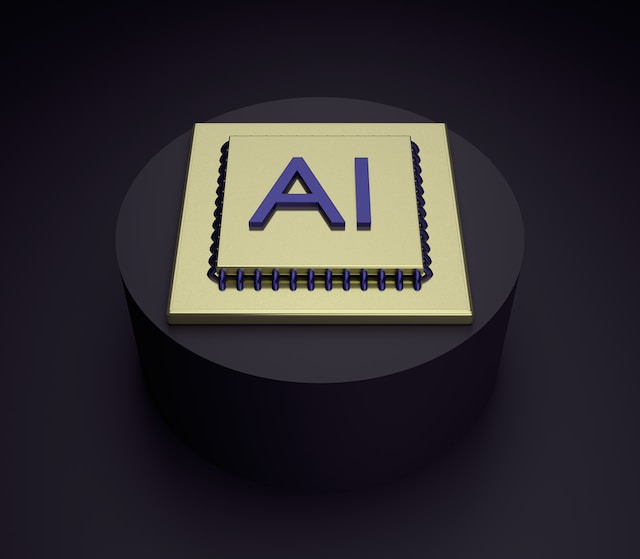Artificial intelligence (AI) has revolutionized the field of digital marketing by providing marketers with powerful tools to analyze data, automate tasks, and personalize content.
Here are some ways in which AI is being used in digital marketing:
– **Content creation**: AI can be used to generate content such as blog posts, social media posts, and product descriptions. This can save marketers time and effort while ensuring that the content is optimized for search engines and tailored to the target audience.
– **Customer segmentation**: AI can analyze customer data to identify patterns and group customers based on their behavior, preferences, and demographics. This allows marketers to create targeted campaigns that are more likely to resonate with their audience.
– **Chatbots**: AI-powered chatbots can provide customer support by answering frequently asked questions and resolving issues. They can also collect customer data and provide personalized recommendations based on the customer’s history and preferences.
– **Predictive analytics**: AI can be used to analyze large datasets and predict future trends and behaviors. This can help marketers make informed decisions about their campaigns and optimize their strategies for maximum impact.
– **Ad targeting**: AI can analyze customer data to identify the most relevant audience for a particular ad campaign. This ensures that the ads are shown to the right people at the right time, increasing the chances of conversion.
AI has the potential to transform digital marketing by making it more efficient, effective, and personalized. However, it’s important to note that AI is not a replacement for human creativity and intuition but rather a tool that can help marketers achieve their goals more effectively.
Artificial intelligence (AI) in social media
Artificial intelligence (AI) is being used in social media in many ways to improve user experience, increase engagement, and personalize content. Here are some examples of how AI is being used in social media:
– **Content creation**: AI can be used to generate content such as blog posts, social media posts, and product descriptions. Certainly! Let’s explore the fascinating realm of **content creation** in the context of AI and digital marketing.
## AI-Powered Content Creation
Artificial Intelligence has significantly transformed how content is generated, optimized, and distributed. Here are some ways AI is revolutionizing content creation:
1. **Automated Writing**:
– AI-driven tools can generate high-quality articles, blog posts, and product descriptions. These tools analyze existing content, understand context, and produce coherent, human-like text.
– For instance, OpenAI’s GPT-3 (Generative Pre-trained Transformer 3) can create compelling narratives, answer questions, and even compose poetry.
2. **Content Personalization**:
– AI algorithms analyze user behavior, preferences, and historical data to deliver personalized content. Whether it’s email newsletters, website recommendations, or social media posts, AI tailors the messaging to individual users.
– Personalization enhances engagement and conversion rates.
3. **Visual Content**:
– AI can generate visual assets such as images, infographics, and videos. Tools like Deep Dream and StyleGAN create stunning visuals based on patterns and artistic styles.
– Additionally, AI-powered image recognition can automatically tag and categorize visual content.
4. **SEO Optimization**:
– AI tools analyze keywords, search trends, and competitor data to optimize content for search engines. They suggest relevant keywords, improve readability, and enhance overall SEO performance.
– Content creators can use AI to ensure their articles rank higher in search results.
5. **Chatbots and Conversational Content**:
– AI-driven chatbots engage with website visitors, answer queries, and provide customer support. They simulate natural conversations and enhance user experience.
– Conversational AI also powers voice assistants like Siri and Alexa.
6. **Content Curation**:
– AI algorithms sift through vast amounts of data to curate relevant content. Whether it’s news articles, social media posts, or research papers, AI helps marketers discover valuable resources.
– Tools like Feedly and Pocket use AI to recommend articles based on user interests.
Remember, while AI can automate and enhance content creation, the human touch remains essential. Creativity, empathy, and strategic thinking are irreplaceable aspects of successful content marketing. So, let’s embrace AI as a powerful ally while continuing to infuse our content with authentic human insights! 🚀📝
What are the benefits of AI in design?
Artificial intelligence (AI) is transforming the field of design by providing designers with powerful tools to automate repetitive tasks, streamline the design process, and generate personalized designs. AI can analyze vast sets of customer data to generate personalized designs and optimize user experiences. AI algorithms can also make the design process simpler and more efficient, allowing designers more time to focus on creative ideation and aesthetic exploration
AI is undoubtedly transforming the design industry, there are concerns about whether AI-generated designs can be considered “art” and whether it is essential to maintain human input in the creative process.
Creativity is a highly valued attribute in designing and innovative thinking in the design process. Therefore, it is necessary to emphasize the role of human designers in bringing a unique perspective and intuition to the creative process.
AI strategy refers to the process of developing a plan for how to use artificial intelligence (AI) to achieve specific business goals. An effective AI strategy should take into account the organization’s overall business objectives, the specific use cases for AI, the data and technology infrastructure required to support AI, and the ethical and regulatory considerations associated with AI.
Here are some key steps involved in developing an AI strategy:
- **Define your business goals**: Identify the specific business problems that you want to solve using AI. This could include improving customer experience, increasing operational efficiency, or reducing costs.
- **Assess your data and technology infrastructure**: Determine whether you have the necessary data and technology infrastructure to support your AI initiatives. This could include data storage and processing capabilities, cloud computing resources, and machine learning tools.
- **Identify your use cases**: Determine which specific use cases for AI are most relevant to your business goals. This could include natural language processing (NLP), computer vision, or predictive analytics.
- **Develop a roadmap**: Create a detailed plan for how you will implement your AI initiatives over time. This should include timelines, budgets, and resource allocation.
- **Consider ethical and regulatory implications**: Ensure that your AI initiatives comply with ethical and regulatory guidelines. This could include ensuring data privacy, avoiding bias in algorithms, and ensuring transparency in decision-making.
Developing an effective AI strategy requires careful planning and consideration of many different factors. However, with the right approach, AI can help organizations achieve their business goals more efficiently and effectively.
Do not hesitate to ask us about AI in Digital Marketing services. We may be the decisive step in your life. Contact us now, or follow up on our social media
(Facebook, LinkedIn, Instagram)



